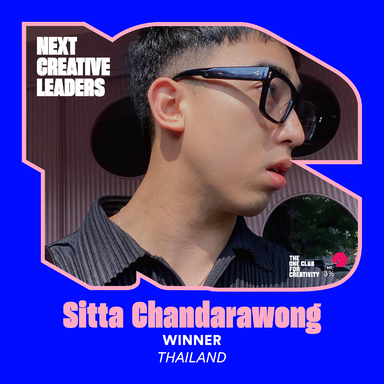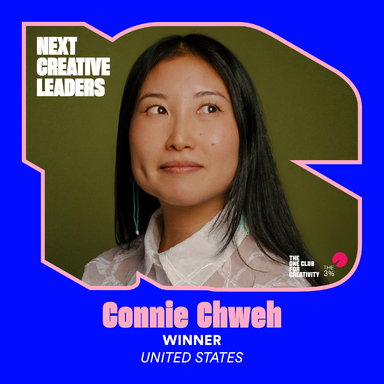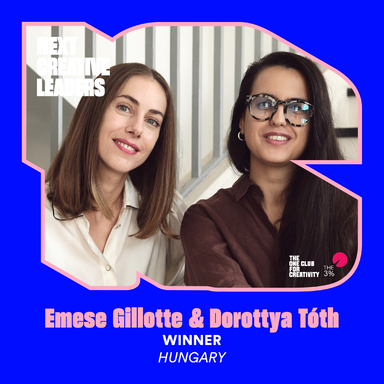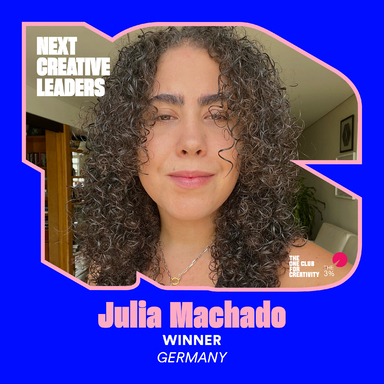
Farishte Irani | Next Creative Leaders
By Laurel Stark Akman on Feb 15, 2024
Now in its ninth year, Next Creative Leaders is growing, expanding, and showing the world what advertising and design can be when you lift up every voice on your creative team. In the future, Next Creative Leaders hopes to continue to uplift women, trans, non-binary and gender expansive creatives as well as focus on growing the diversity of voices we honor. Below, co-founder, Laurel Stark, introduces some of the Next Creative Leaders to keep an eye on.
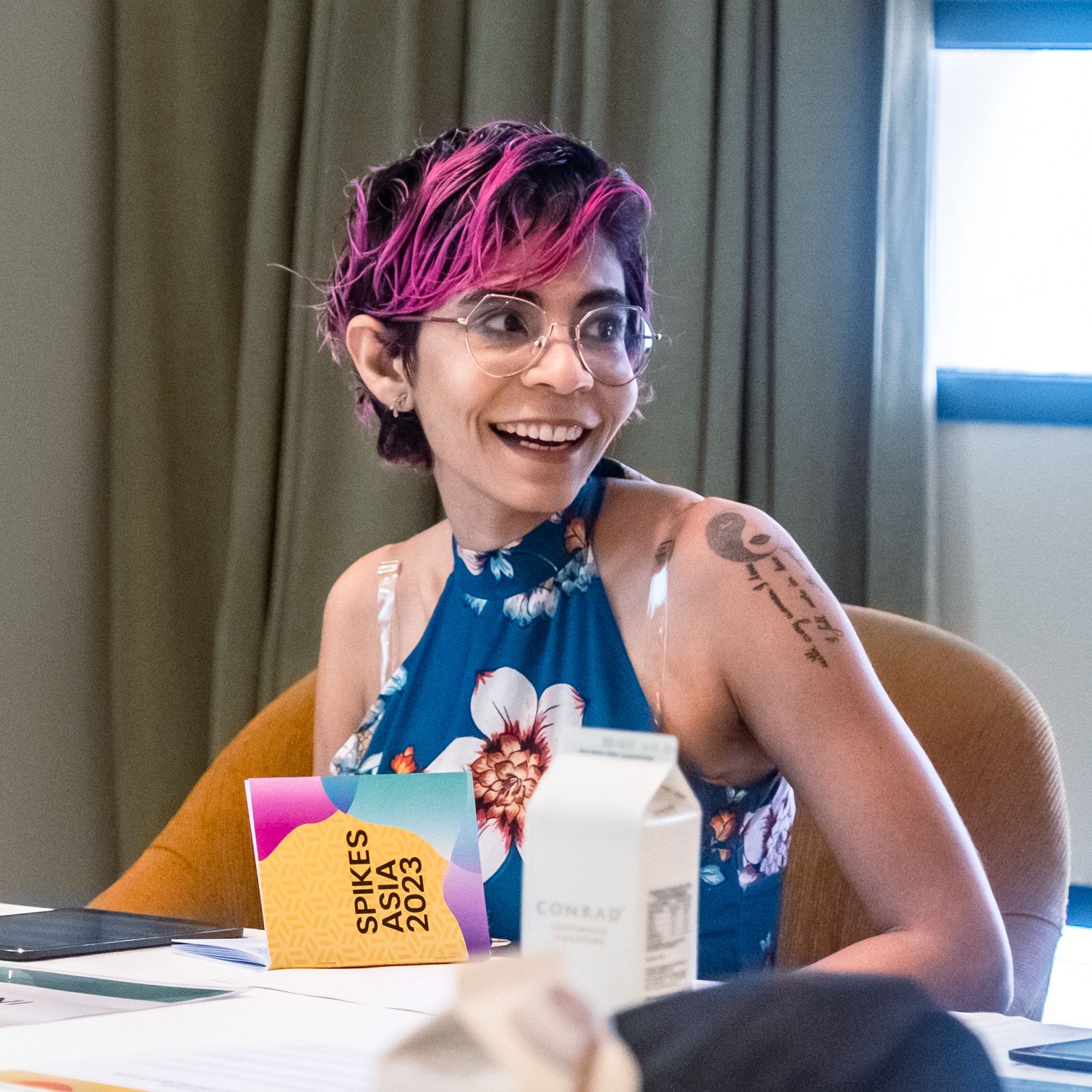
Farishte Irani
Group Head - Copy, Dentsu Creative
Pronouns:
she/her
Based:
Mumbai, India
Hometown:
Dahanu, India
What made you apply for Next Creative Leaders?
I always, and I mean always, kept up with the women who won Next Creative Leaders and used them as a benchmark for myself. I used their stories as inspiration for my own journey, researched their idols, and looked at their work on days when I felt stuck or put down. As someone who experienced the impact of Next Creative Leaders before she was even ready to apply, wanting to be a part of and advocate for it came naturally.
What does leadership mean to you?
To me, leadership is the ability to swallow your ego, put aside your insecurities, and acknowledge that while any member of your team can turn into the creative you always dreamed of, your job is to mentor them to the best of your ability. It comes down to overcoming this very real insecurity and using it to become a better creative, instead of a selfish leader.
What is the ad industry’s biggest challenge and how would you fix it?
The biggest challenge now, I suspect, is a challenge that plagues every creative industry - the generational and gender gap in creativity. Advertising - especially now, is changing rapidly. I’ve noticed young women getting interrupted and put down more than ever in brainstorming sessions, simply because they’re young and ‘Gen Z’. Their ideas are turned down before they’re even heard out. In an ideal world, I’d fix it with sessions training upper management to overcome their unconscious biases and policies that allow young women to bring moments like this to management’s attention. Until I’m able to do that, however, I consciously fighting for and giving them space to share their opinions and ideas, uninterrupted with every brand and brainstorm I contribute to.
What is your secret creative super power and how do you flex it?
I’m never afraid to share an opinion or an idea. Even if it is at the risk of sounding foolish, if I feel strongly about something, I let my feelings be known. It has always worked in my favour and has helped build me into a better, stronger creative. The regret of not sharing an opinion is a lot stronger than the fear of being judged for a ‘stupid’ idea.
If you could go back in time, what would you say to yourself, on your first day as a professional creative?
You can’t rush success. Learn everything you can, apply everything you can, and remember why you love your job. Your dream campaigns will follow.
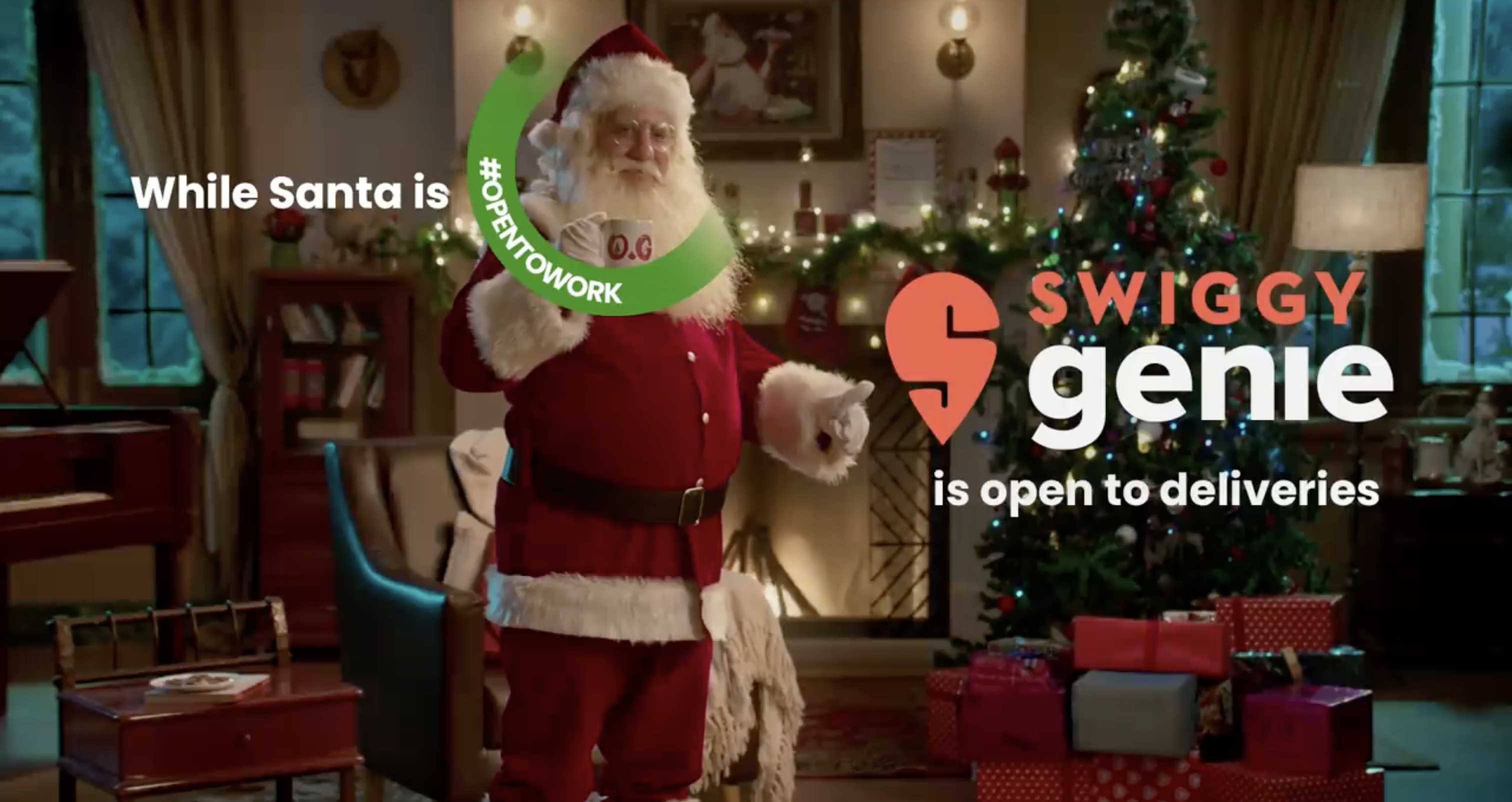
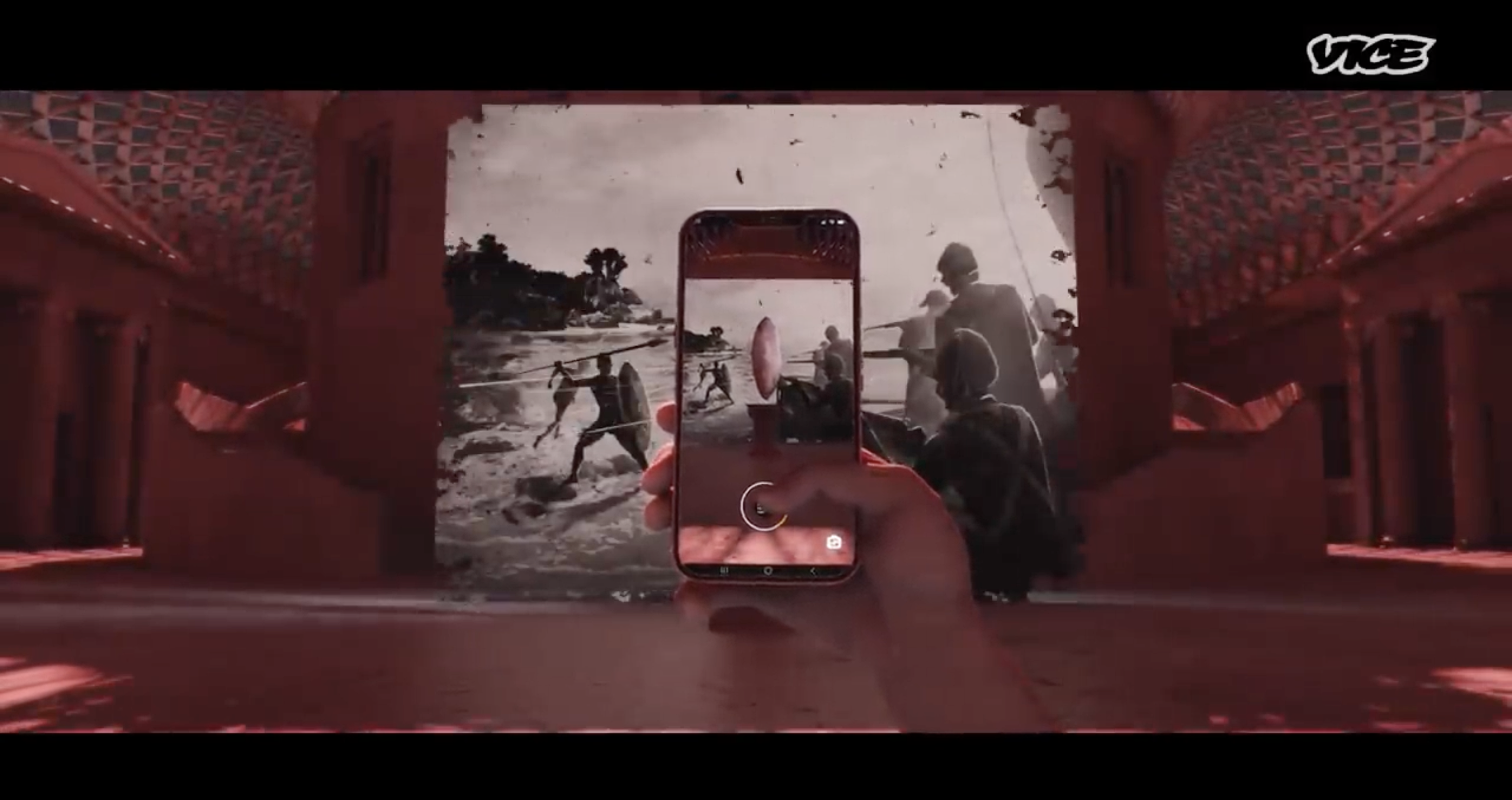
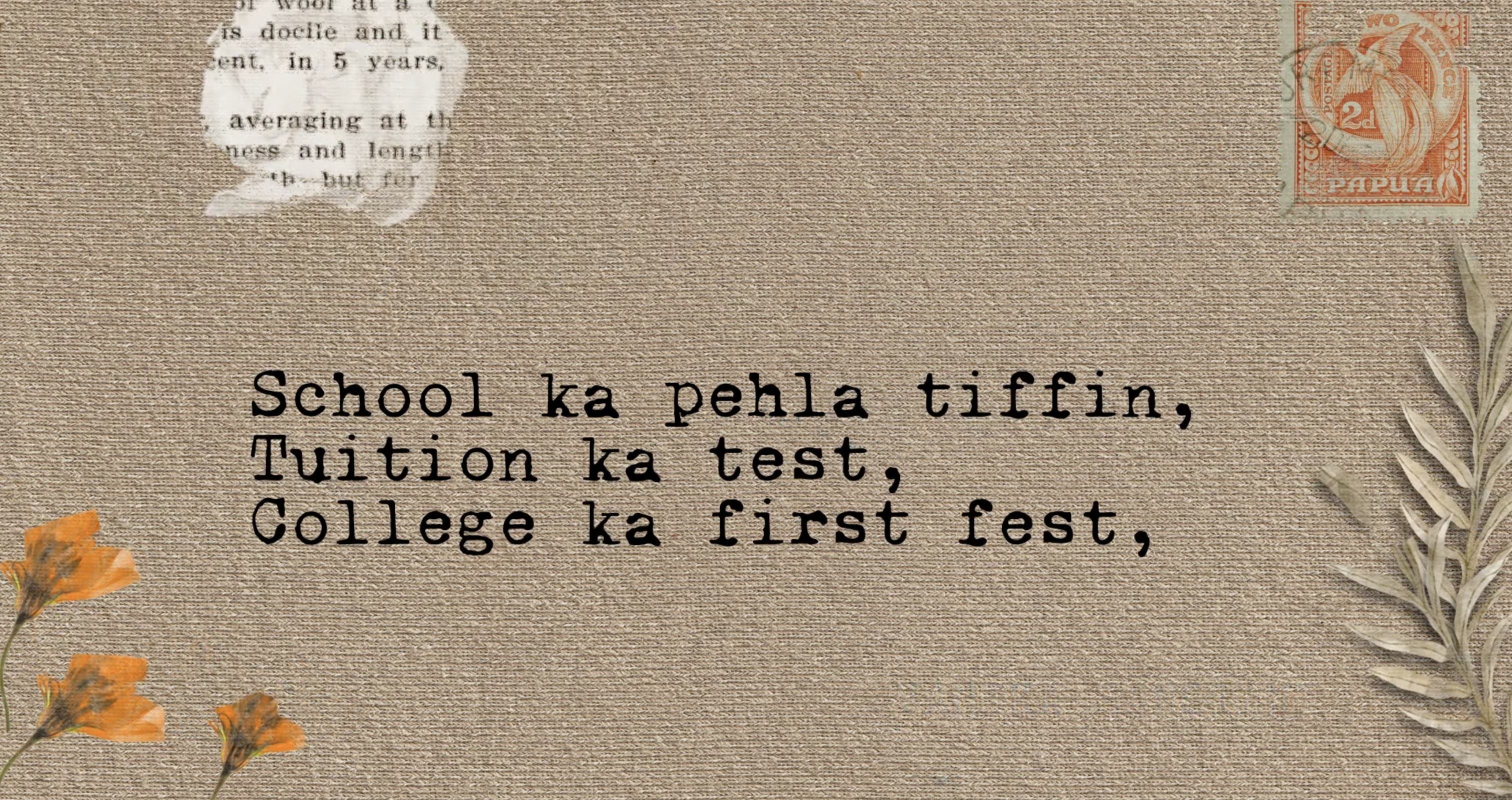
What is your “breaking into advertising” story?
I always knew I wanted to do something creative. My older sister started talking to me about her favorite ads, which also led me to unconsciously create a list of my favorite ads before I even started college. While I was the cliched younger sister who wanted to follow in her older sister’s footsteps, the beginning of my career also coincided with the beginning of the #MeToo movement. My timeline was filled with women in media sharing their experiences, and every story became a cautionary tale against advertising. I finally switched in 2019, when I realized I no longer wanted to be afraid of an industry I so ardently kept up with. Even though I had no ‘advertising’ portfolio or degree to speak of, I knew, in my bones, that all my experimenting and job-switching had finally culminated into something. I was offered a job at Publicis to work as a copywriter for Mercedes-Benz. I did not (still do not) know how to drive, but my seniors there took me under their wing, saw that I was hungry to learn, and taught me more than any degree ever could.
How did your upbringing, family, or culture shape you as a creative?
Even though neither of my parents had stereotypically ‘creative’ careers, I grew up surrounded by creativity. My first memory of ‘creativity’ was my mother, a teacher, making up songs to teach me addition and subtraction. My father, a businessman, used to write the most wonderful speeches for school elocution competitions. Though I came from a small town where creative careers were anything but the norm, I learned early on that ‘creativity’ could be found everywhere, and I was lucky enough to be in a household that actively encouraged it. This environment also made me extremely competitive as a person - the fact that I was, perhaps the only student from my class to pursue a creative career meant that I had to succeed. I had a point to prove - first to myself, and then to any 13-year-old who disliked Math as much as I did.
Can you tell us about HomeTown Creatives and your mission with it?
The HomeTown Creatives comes from a very personal place and a very personal experience as someone who spent her formative years in Dahanu, a small Indian town. After moving to Mumbai for college, I realised that aspiring creatives in small towns have very different (read: much fewer) resources than aspiring creatives in larger, urban cities. The HomeTown Creatives aims to balance this playing field and work with aspiring creatives on a grassroots level. The dream is to eventually tie up with major platforms and creative leaders to provide one-on-one mentorship to promising small-town creatives, giving them lessons they can pass on to their peers. The HomeTown Creatives is essentially what I wish I had growing up.
"To me, leadership is the ability to swallow your ego, put aside your insecurities, and acknowledge that while any member of your team can turn into the creative you always dreamed of, your job is to mentor them to the best of your ability. It comes down to overcoming this very real insecurity and using it to become a better creative, instead of a selfish leader."
How are you leaving the work and the workplace better than you found it?
Everything I do now is inspired by the resources I wish I had when I entered the industry. So when I go to work now, I always make it a point to borrow from my own experiences as a young copywriter. I have a ‘no idea is stupid’ policy, largely inspired by my own insecurities and inability to speak up when I was starting out. I’ve seen leads get so caught up in their own ideas and hierarchies that they forget that every creative, no matter how supposedly ‘inexperienced’, deserves to have their ideas heard out. As a lead myself now, I actively make sure that I listen more than I talk.
Who would you thank in your Next Creative Leaders acceptance speech?
The list is long. Very, very long.
There are my parents, who, despite being told that their daughters are ‘future engineers’ and ‘future doctors’, gave me the freedom and confidence to choose a more creative path. There’s Arnaz, my older sister who is also the first badass woman in advertising I had the pleasure of knowing.
My first-ever managers in the industry, Rajeshwari Rao and Arvind Menon, who taught me the value of good creatives, good people, and good managers. There’s Kushal Lalvani who thought of me in a room of opportunities. P.G. Aditya and Binaifer Dulani, who helped a plethora of young creatives find their ‘break’ with the Unfiltered History Tour. Gabriela Guerra, my co-juror at Spikes Asia who has never shied away from sharing her experience and knowledge with me.
Most recently, and perhaps, more importantly, Sakshi Choudhary, who kicked the door down for Indian creative women, took the time to guide me and encouraged me to apply for Next Creative Leaders. While one could argue that I’m already ‘grown up’, I’d like to be like her when I grow up. I suppose my Next Creative Leaders acceptance speech is proof that the advertising industry, and the people in it, have the potential to uplift its creatives.
Tags
Related
